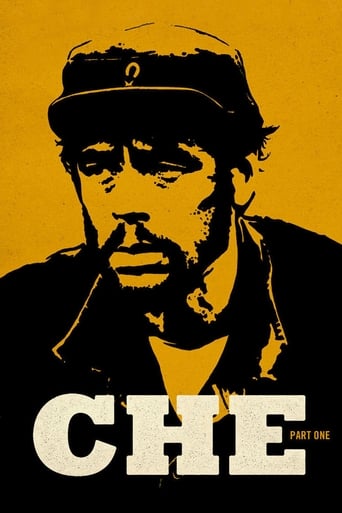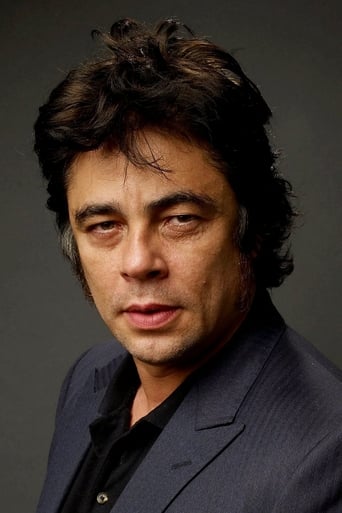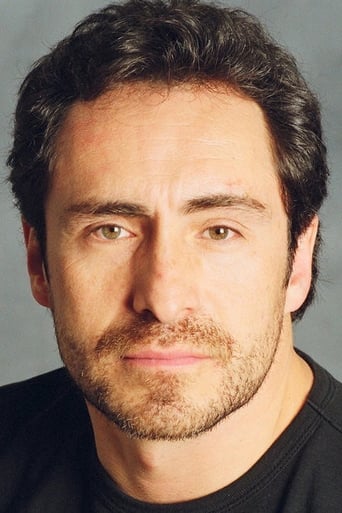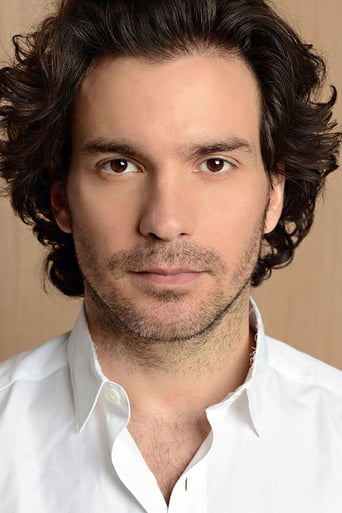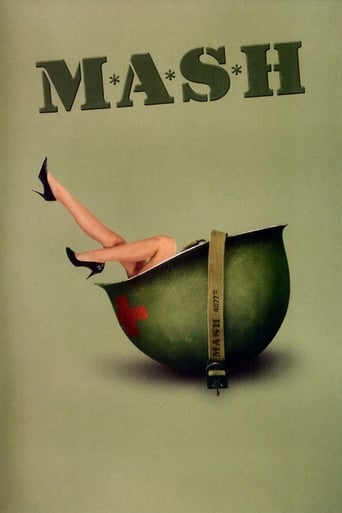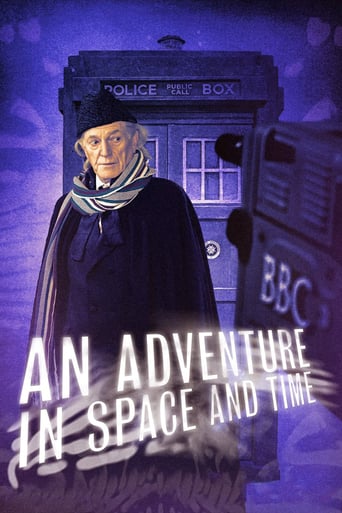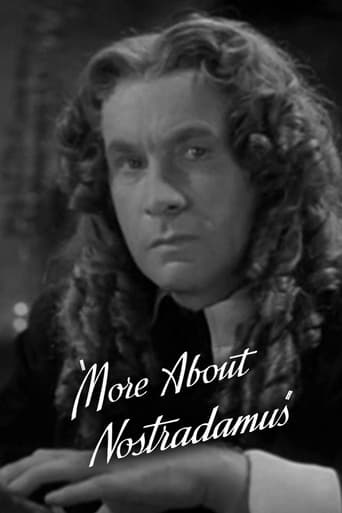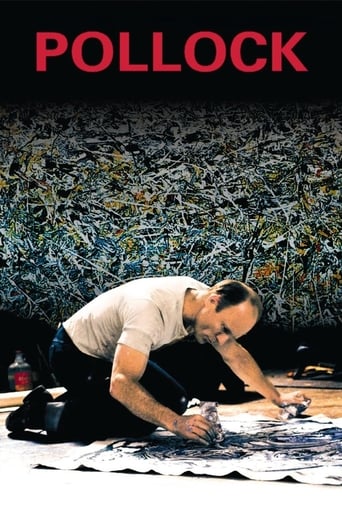Che: Part One (2008)
The Argentine, begins as Che and a band of Cuban exiles (led by Fidel Castro) reach the Cuban shore from Mexico in 1956. Within two years, they mobilized popular support and an army and toppled the U.S.-friendly regime of dictator Fulgencio Batista.
Watch Trailer
Cast
Similar titles
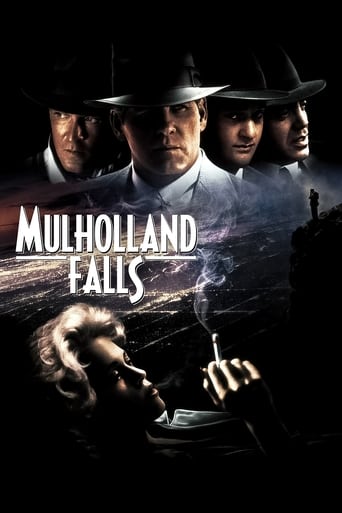
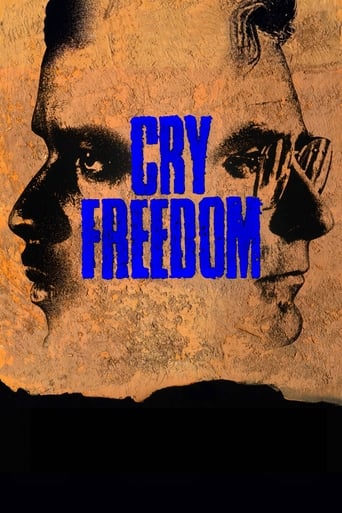
Reviews
It's easily one of the freshest, sharpest and most enjoyable films of this year.
Excellent and certainly provocative... If nothing else, the film is a real conversation starter.
It’s not bad or unwatchable but despite the amplitude of the spectacle, the end result is underwhelming.
Great example of an old-fashioned, pure-at-heart escapist event movie that doesn't pretend to be anything that it's not and has boat loads of fun being its own ludicrous self.
A terrific film that raises the spirit of a revolutionary to the hilt.This movie is a 2 part biopic that runs nearly four and a half hours. When I saw it for the first time at home on in 2009, I just took a ten-minute break after the completion of the first part and was dying to start the second part. After finishing the movie viewing, I was overwhelmed. I was very happy; there is an inspiration that I must make my life worth before I die. There is an incentive to value life.Ernesto Che Guevara is one of the most inspirational revolutionaries of the centuries the world over. The way he organized and won guerrilla wars was something that was a shock to many regimes in the American continents. The depiction of Che by Benicio Del Toro is something that took me by a surprise. Benicio Del Toro was intrepid in playing Che. Never did I feel, I was seeing an actor, all through it was just Che.The makeup was superlative. For the first ten minutes of the second part of the film, I was stunned. I could not recognize who is playing the character. So right is the disguise and so great is the acting. Cinematography and art direction in this could be used as references for generations to come. The film took me into 1950's and 1960's and made live in those times.From the word go to the last frame, there is perfection in craft technically. The spirit of revolution is in place. Cuba, Fidel Castro, Revolution, Bolivia, UN conference, Che, wow so many overwhelming elements.Kudos to Steven Soderbergh and perhaps this is his finest effort. Also to Benicio Del Toro. Benicio, you will live on as Che forever.A 5/5 for my favorite revolutionary films. One of the all-time great films this.
and almost, correct. portrait of a character, it becomes a poem. an eulogy with flavor of Hollywood war films. it is not a sin because each director makes his choices. and, in this case, the not inspired political ideas are important but the art to create a film who present not only images but has desire to give a testimony. so, a problem of courage. and extraordinary occasion for Benicio Del Toro to do a magnificent role. OK, in many parts it is a sentimental lesson. but the measure is not broken. the realism of fight for conquest of power, the good acting and the force of images are real virtues. it is not exactly propaganda but it has not a profound vision about root of events. but it is impressive and that is relevant.
It helps to know that this was originally brought to life as a Terrence Malick screenplay about Che's disastrous forray in Bolivia. Financing fell through and Soderbergh stepped in to direct. He conceived a first part and shot both back to back as one film trailing Che's rise and fall.He retained however what I believe would be Malick's approach: no politics and a just visual poem about the man behind the image, exhaustive as the horrible slog through Cuban jungles and windswept Andean plateaus must have been. Malick applied this to his New World that he abandoned Che for, lyrical many times over.But Soderbergh being an ambitious filmmaker, he puzzled over this a little more. Here was a man of action at the center of many narratives about him, some fashioned by himself, conflictingly reported as iconic revolutionary or terrorist, charismatic leader or ruthless thug, erudite Marxist thinker or brutal soldier.So how to visually exemplify this contradicting ethos as our film about him? And how to arrange a world around this person in such a way as to absorb him whole, unfettered from narrative - but writing it as he goes along - off camera - but ironically on - and as part of that world where narratives are devised to explain him. As flesh and bones, opposed to a cutout from a history book.One way to do this, would be via Brecht and artifice. The Korda photograph would reveal lots, how we know people from images, how we build narratives from them. Eisenstein sought the same in a deeper way, coming up with what he termed the 'dialectical montage': a world assembled by the eye, and in such ways as the eye aspires to create it.So what Soderbergh does, is everything by halves: a dialectic between two films trailing opposite sides of struggle, glory and failure, optimism and despair. Two visual palettes, two points of view in the first film, one in the presence of cameras hoping to capture the real person, the other were that image was being forged in action.The problem, is of course that Brecht and Eisenstein made art in the hope to change the world, to awaken consciousness, Marxist art with its trappings. By now we have grown disillusioned with the idea, and Soderbergh makes no case and addresses no present struggles.But we still have the cinematic essay about all this.The first part: a narrative broadcast from real life, meant to reveal purpose, ends, revolution. The second part: we get to note in passing a life that is infinitely more expansive than any story would explain, more complex, beautiful, frustrating, and devoid of any apparent purpose other than what we choose as our struggle, truly a guerilla life.I imagine a tremendous film from these notions. Just notice the remarkable way Part 2 opens. Che arrives at Bolivia in disguise, having shed self and popular image. No longer minister, spokesman, diplomat, guerilla, he is an ordinary man lying on a hotel bed, one among many tourists. Life could be anything once more, holds endless possibility. Cessation.What does he do? He begins to fashion the same narrative as before, revolution again. Chimera this time. Transient life foils him in Bolivia. Instead of changing the world once more, he leaves behind a story of dying for it. We have a story about it as our film, adding to the rest.
This movie follows the beginning of the relationship between Ernesto "Che" Guevara and Fidel Castro as they head to Cuba to begin the revolution. Finding the history of this relationship fascinating, I had very high hopes for the film. Unfortunately it did not meet my expectations. Though I felt that the movie was accurate historically the presentation was lacking. The acting in Soderbergh's Che: The Argentine (Part One) is stilted at best and often feels very forced, especially whenever Che has one of his many (very many) asthma attacks. The movie progressed extremely slowly and the majority of it was spent trekking through the bush or slogging through marshes. The Argentine is difficult to watch and boring. The scenes of Che's time in New York meeting the social elite and doing interviews were very well done and filming in black and white was a nice aesthetic touch. These scenes were interspersed with asthma attacks, long waits in the underbrush and trudging through mud and rain and this made it hard to keep up with what was happening in both 'worlds'.
